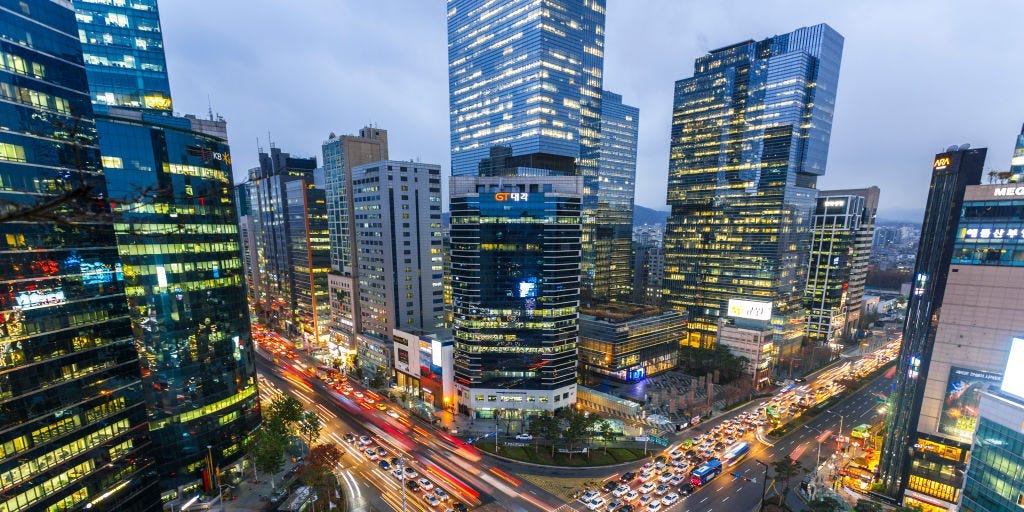- In South Korea, the number of Russian asylum seekers will jump fivefold in 2023.
- The majority of Russian applicants cited draft avoidance for the war with Ukraine.
- Two Russians who fled to avoid military draft were stranded at Incheon International Airport for several months.
According to a recent government report cited by the Korea Herald, South Korea is seeing a sharp increase in asylum seekers from Russia.
More than 5,000 Russian citizens filed asylum applications in 2023, a fivefold increase from the previous year's total of 1,038.
This jump roughly matches the total number of asylum seekers in Russia recorded in the 26-year period from 1994 to 2019.
Russian asylum seekers are fleeing Russia amid the war with Ukraine. President Vladimir Putin's military mobilization of 300,000 soldiers in September 2022 forced many Russian men to flee the country and avoid conscription.
According to an August 2023 report in The Economist magazine, up to 1 million Russians have left the country.
In February 2023, Politico reported that two Russian nationals who fled the draft had been stranded at Incheon International Airport near Seoul since October. The men were given the chance to enter South Korea, but the asylum application process itself could take years, AFP reported at the time.
The influx of asylum seekers is not limited to Russians. Last year, South Korea reported 18,838 refugee claims, an increase of 63% from the previous year. Citizens of Kazakhstan (2,094), China (1,282), Malaysia (1,205) and India (1,189) also contributed to the increase.
According to a report by Korea Bizwire, Russian applicants accounted for 30.5% of all appeals.
The majority of asylum seekers cited 'political opinions' as the main reason for applying for asylum, with 4,580 applicants opposing military conscription, 2,665 due to religious concerns, and 1,205 due to affiliation with a particular social group. 887 people are concerned about their membership, and 887 people want to be reunited with their families, while 719 people cite racial factors.
Despite a sharp increase in asylum applications, South Korea's refugee recognition rate remains low. Of the 5,950 cases evaluated last year, only 1.7% (101 applicants) were granted refugee status.
According to the Korea Herald, the average approval rating for the Organization for Economic Cooperation is 24.8%, making South Korea a particularly restrictive country when it comes to asylum applications.


